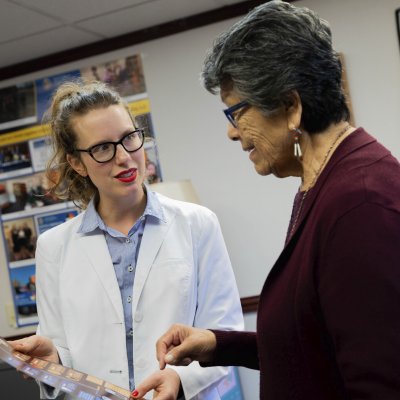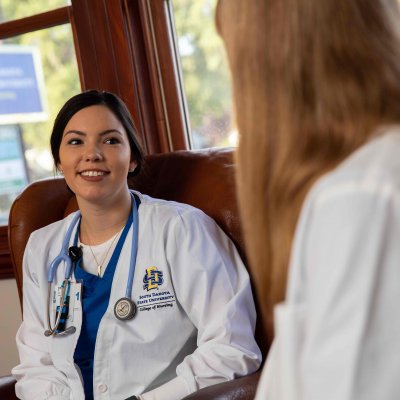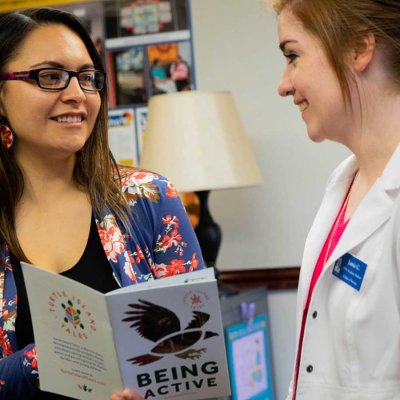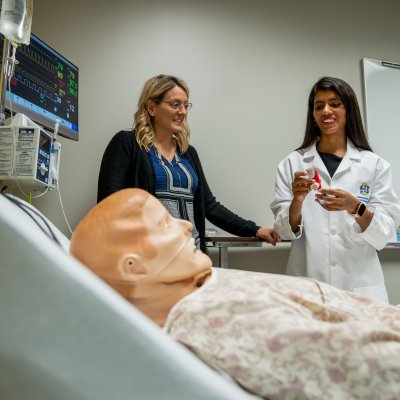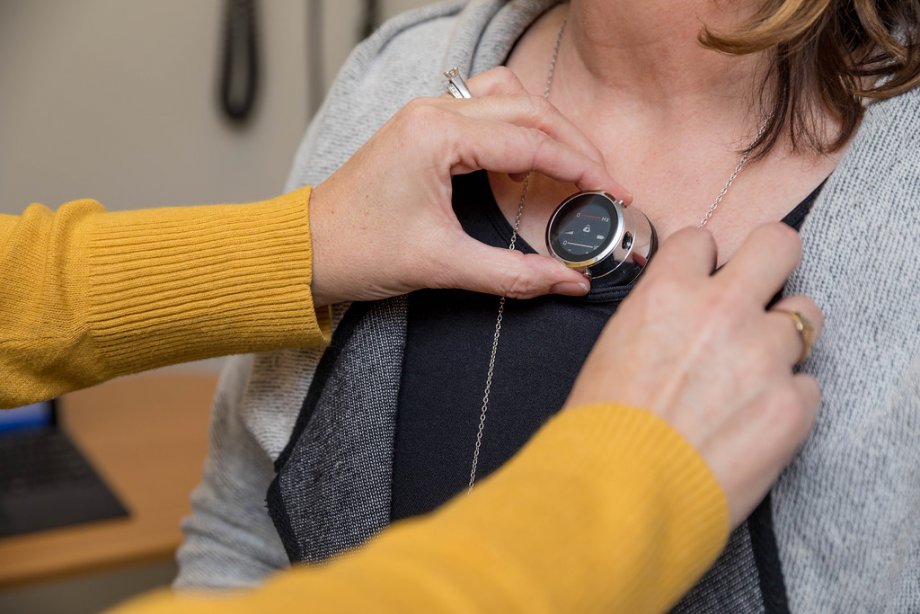
About the Program
The DNP program prepares Advanced Practice Registered Nurses (APRNs) to transform clinical practice as expert clinicians and leaders with a special focus on rural and underserved populations. In addition to delivering evidence-based direct patient care at an advanced practice level to individuals across the lifespan in primary care settings, graduates of the DNP program will learn skills needed to produce and implement valuable evidence to guide practice and are prepared to work collaboratively with rural communities in an effort to reduce health disparities.
We feature collaboration and placement with over 200 established partnerships in a variety of local and regional clinical settings. Our clinical preceptors are engaged, caring healthcare professionals who provide an invaluable piece of our students’ clinical education.
Pathways and Specializations
We offer three pathways:
- Bachelor's to DNP (for registered nurses with a bachelor's degree)
- Master's to DNP (for those with a master's degree in nursing with a nurse practitioner, clinical nurse specialist, nurse midwife and/or nurse anesthetist focus)
- Master's to DNP (for registered nurses with a non-clinical focus master's degree in nursing)
We offer three specializations:
- Family Nurse Practitioner
- Psychiatric Mental Health Nurse Practitioner
- Doctor of Nursing Practice (for those with current certification as NP, CRNA, CNM or CNS)
- Clinical Nurse Leader
Program Level Student Learning Outcomes
- Integrate theoretical and scientific underpinnings of nursing and other disciplines to address emerging healthcare and practice issues.
- Engage in health policy at all levels to influence healthcare delivery concerns, such as health disparities, cultural sensitivity, ethics, access to care, health finance and quality of care.
- Demonstrate leadership at the organizational and/or systems level to address health outcomes of individuals and populations though evidence-based initiatives.
- Utilize advanced nursing knowledge and information systems/technology related to clinical prevention and health promotion to address gaps in healthcare.
- Collaborate with the interprofessional team in the translation, implementation, analysis and dissemination of evidence-based practice to improve healthcare outcomes.
- Employ evidence-based practice and advanced clinical judgment to comprehensively assess, design and deliver mental health care for individuals across the lifespan.
Let's Talk
Our Nursing Student Services team is ready to help you find a path to meet your nursing goals. Fill out this online form and our staff will get back to you as soon as possible to answer your questions.
Virtual View of SDSU Nursing
Learn more about SDState's nursing program, faculty, learning facilities and more wherever you are.


